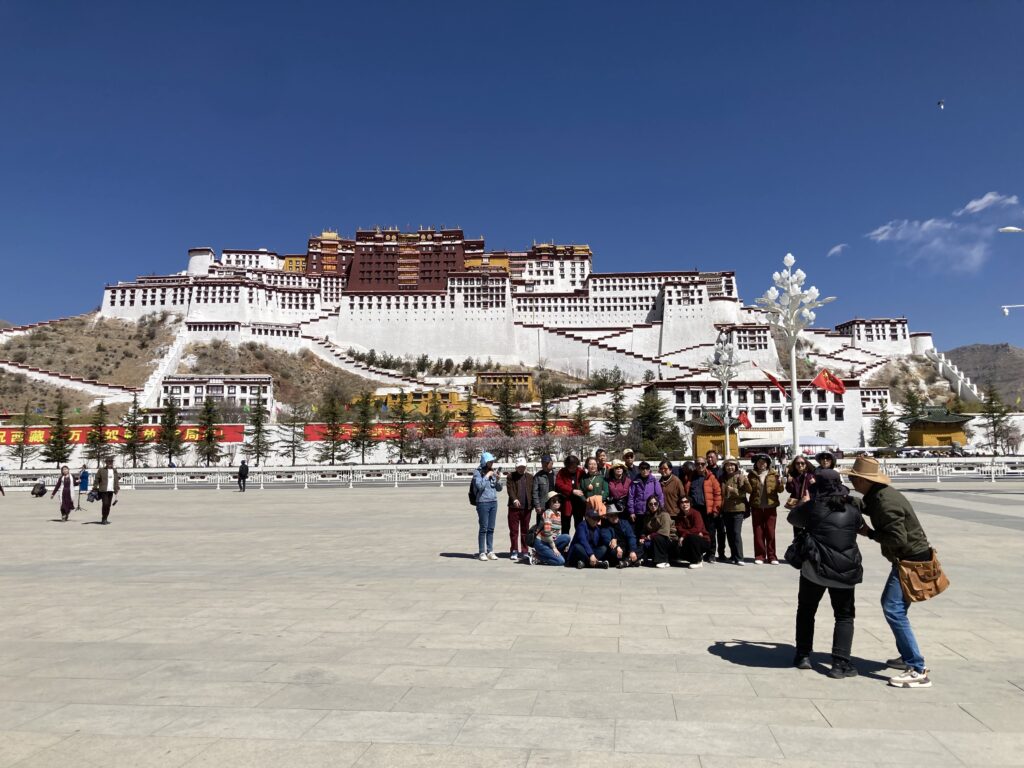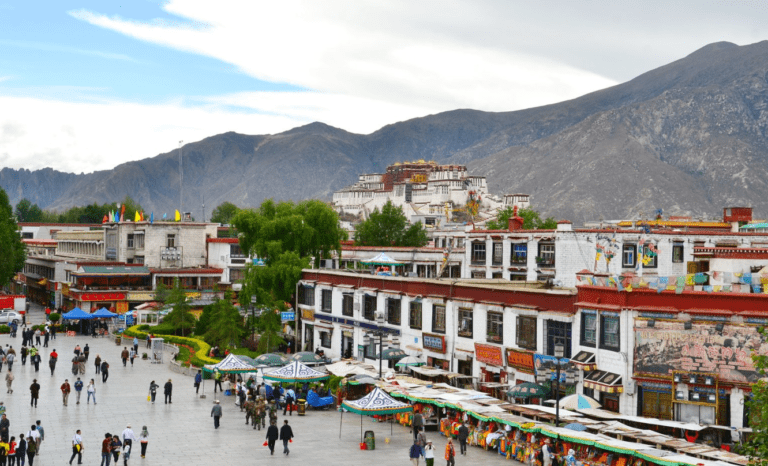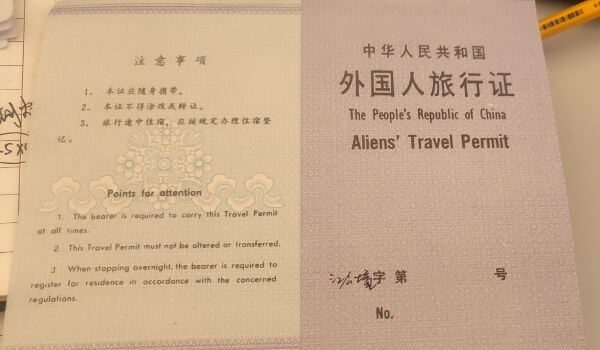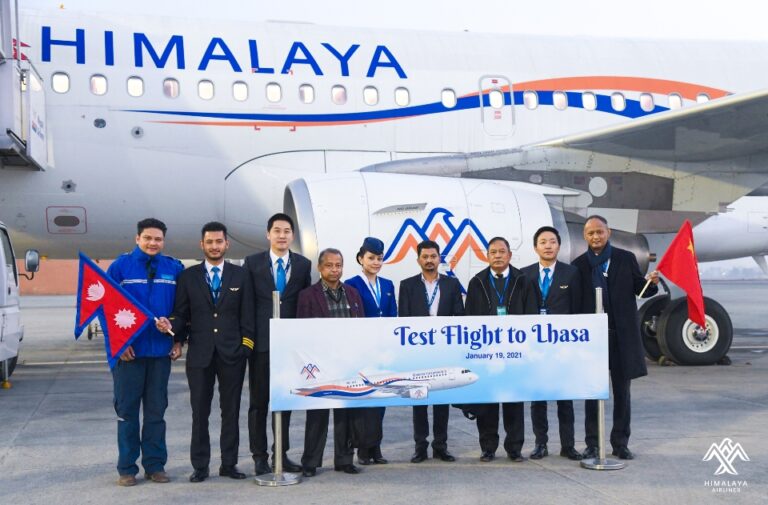Traveling to Tibet, one of the most breathtaking and unique destinations on earth, requires more preparation than most places in China. All foreign travelers—whether tourists, expats, business visitors, or even foreign long-term residents in China—must obtain special permits in addition to the standard China visa (or exemption status where eligible).
In this detailed guide, you’ll learn exactly why Tibet is restricted, what permits you’ll need, how to apply, and how Experience Tibet can seamlessly arrange the documentation for your journey—including access to unique zones such as Mount Kailash or military areas.
Why Are Permits Required to Visit Tibet?
Unlike most parts of China, travel to the Tibet Autonomous Region (TAR) is strictly controlled. The Chinese government requires all foreigners to join a registered group or private tour arranged by a fully licensed Tibet travel agency; independent travel is not allowed for foreigners. This policy is in place for several reasons:
- Political sensitivity: Tibet is considered a sensitive region, and the government manages foreign presence carefully to ensure safety and security.
- Environmental protection: Limiting traveler access helps protect Tibet’s fragile natural and cultural heritage.
- Safety and monitoring: Tours with licensed agencies ensure tourists are accounted for and have proper support in the region.
- Legal compliance: Only official agencies can obtain and deliver the required permits; individual applications are not allowed.
What Documents and Permits Are Required for Foreigners?
1. Chinese Visa or Visa-Exemption
- All foreigners must have a valid passport with at least six months’ validity.
- A standard Chinese tourist visa (“L” type) is required for most travelers. If you’re transiting or from a visa-exempt country, you may have additional options.
- NEW: As of 2025–2026, citizens from many countries (including France, Germany, Italy, Spain, much of Europe, Australia, New Zealand, parts of Latin America, Southeast Asia, and more) can enter China visa-free for up to 15 or 30 days. However, this exemption does NOT grant direct access to Tibet—you must still book a tour and obtain the special Tibet permit even if you are entering China without a visa.
- Official updated China visa/entry policies: China Visa & Tibet Travel Permit Guide 2025.
2. Tibet Travel Permit (TTP)
- This is the most important document for all foreign travelers entering the Tibet Autonomous Region (Lhasa and beyond).
- The TTP is not a visa: It is a special entry permit issued by the Tibet Tourism Bureau (TTB) and is mandatory for entry—even for foreign residents already living in China.
- The TTP is obtained exclusively through an authorized Tibet travel agency. It is not possible to apply as an individual or pick up on arrival.
- It is valid only for the area listed in your itinerary (by city/prefecture) and for specified dates.
- For travel beyond Lhasa (Shigatse, Namtso, Everest, Mt. Kailash, etc.), the TTP must specify these regions, like our tours
5-Day Lhasa & Yamdrok Lake Tour and 10-Day Lhasa, Everest, Namtso Tour
3. Additional / Special Permits
- Aliens’ Travel Permit (ATP):
- Required for restricted areas outside Lhasa, such as Shigatse, Everest Base Camp (EBC), and more.
- Your tour guide and agency will arrange this after you arrive in Lhasa.
- Military Permit:
- Required for areas near China’s borders or military zones: Mt. Kailash (Ngari), Nyingchi, eastern Tibet, some remote trekking routes.
- It is more restrictive and takes longer to process—your Experience Tibet agent will advise you and apply well in advance.
- Foreign Affairs Permit:
- Needed for certain border areas or scientific/expedition visits.
Can You Visit Tibet Without a Permit?
No. Even if you have a Chinese visa (or visa exemption), ALL foreigners must obtain a Tibet Travel Permit through a licensed agency.
- You cannot board a train or flight to Lhasa without showing the TTP.
- No agency can sell “permit-only” tickets: the law requires at least a minimal itinerary with a guide, booked hotels, and local support.
- Chinese citizens (including from Hong Kong and Macau) do NOT require the TTP, but must bring their own local IDs and some may need extra approvals. Citizens from Taiwan require TTP.
How Does Experience Tibet Help With Permits?
As an established, registered local travel agency with 15+ years’ expertise, Experience Tibet is fully authorized to:
- Design your custom itinerary and confirm hotel & guide bookings (required steps for permit application).
- Guide you through the China visa or visa exemption process, based on your nationality and trip dates.
- Prepare and submit your Tibet Travel Permit application directly to the Tibet Tourism Bureau.
- Arrange all additional regional, alien, or military permits based on your planned route (Mt. Kailash, border zones, etc.).
- Update you on regulatory changes (for example, updates to border restrictions, religious festival periods, or pandemic-related closures).
- Deliver your original TTP (physical paper permit) to your hotel in China for train/flight boarding—or provide digital scans for preliminary boarding where possible.
- Organize fully guided, safe trips for solo travelers, couples, families, and small groups—all 100% legal and stress-free.
Learn more about our agency and expertise.
Step-by-Step—How to Apply for the Tibet Travel Permit
- Contact Experience Tibet: Start planning and get personal support.
- Share your passport scan and Chinese visa (if applicable): This is mandatory for the official TTP application.
- Confirm your itinerary and dates: All permits must list your route and exact hotel stays; no open-itinerary allowed for foreigners.
- Receive TTP in China: The TTP will be couriered to your hotel or train/airport in China; digital copies may be sent in advance for preliminary travel steps in some cases .
- Collect any additional permits: For Everest, Shigatse, Mt. Kailash or border/military zones, your guide will arrange further permits on your behalf after arrival in Lhasa.
For details on specific permit procedures, see our Tibet Travel Permit Tips Guide.
What About Residents or Expats Living in China?
- Foreigners living or working in China (even with long-term residence permits) must follow the same steps—booking via an authorized Tibetan travel agency, with TTP and all required permits.
- You are not allowed to travel independently.
- Chinese work or residence visa holders also submit copies of their visa/residence certificate to the agency.
What Happens if the Permit Application Is Denied?
Occasionally, permit processing times increase or access to certain zones is restricted—usually during sensitive periods (government meetings, anniversaries, key festivals, unrest, etc.).
- The agency will inform you if there are delays or region closures and work with you to modify the itinerary accordingly.
- Entry without permit is strictly forbidden and border controls are actively enforced—do not risk traveling without the proper documents.
Frequently Asked Questions
Q: How early should I apply?
Apply at least 20 days before your intended arrival. High season or special zone trips (like Mount Kailash) may require more time.
Q: Who can’t apply?
Occasionally, journalists/diplomats, or holders of certain “sensitive occupations” may be refused entry or face delays.
Q: Is Tibet open in winter?
Lhasa and many sites are open year-round, but remote or border areas may close due to weather or regulation.
Q: Can I get a permit only, without a guide or tour?
No—the law requires a packaged itinerary, at least a simple tour, guide, and pre-booked hotels.
Q: Do children need permits?
All foreign nationals, regardless of age, require individual permits.
Q: Can expats in China (not tourists) go?
Yes, but you must also book through an agency and provide required ID/visas.
Learn more in our FAQ section.
Permits for Special Zones—Mount Kailash, Nyingchi, Military Areas
- Besides the TTP, special permits are needed for certain regions:
- Mount Kailash/Ngari region: Both Alien’s Travel Permit and Military Permit.
- Nyingchi: Similar requirements, especially if approaching close to the Indian border.
- Remote trekking or expedition routes: Additional Foreign Affairs Permit or military approval may be needed.
Experience Tibet will clearly explain which permits are necessary based on your chosen adventure. See the detailed travel package differences guide for more.
Trust Experience Tibet—Your Authorized Travel Agency
With over 15 years operating as a fully licensed, locally based agency, Experience Tibet guarantees:
- 100% compliant permit application—no legal risks for your Tibet journey
- Deep experience in all permit categories, including difficult areas like Kailash or restricted zones
- Real-time support, expert guides, and custom itineraries for all traveler types
- Up-to-date knowledge of entry rules and border situations
- Clear communication—no agency “shortcuts”, no generic packages
Read reviews from real travelers and see how we make travel to Tibet seamless and safe.
Summary—Be Prepared, Travel Responsibly
Traveling to Tibet is an amazing and privileged adventure. Follow official rules, secure the correct permits, and travel with peace of mind—Experience Tibet will handle all permit and travel arrangements, allowing you to focus on enjoying the roof of the world.








